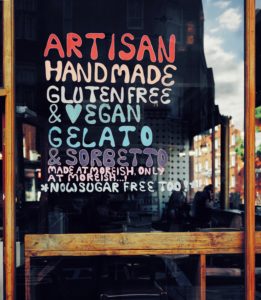Having celiac disease can be a real pain. Patients suffering from abdominal pain and stomach issues often turn out to have celiac disease. Eating the proper gluten-free diet can leave patients with a symptom-free life- or close to it.
Review of celiac disease:
Celiac disease is an autoimmune system disorder. Around 3 million Americans suffer from celiac disease which is about one in 100 people in the world. Two and a half Americans are still undiagnosed and are at risk for long-term health issues.
When people with celiac disease eat gluten, their bodies has an immune response which attacks the small intestine. Gluten is a protein found in barley, rye, and wheat. Notice that most of the bread, pasta, or cracker products in grocery stores have gluten. Over time, these attacks lead to damage on the villi. The villi are long fingerlike ribbons that line the small intestine.
The villi promote absorption of nutrients. If they villi are damaged, the body is not capable of absorbing the proper amount of nutrients. Also, keep in mind if a family member has celiac disease, you may have it.
It is hereditary:
 It is hereditary which means it runs in families. People with an immediate family member or first-degree relative have a one in ten chance of developing celiac disease. For those who don’t know, a first-degree relative is a parent, sibling, or child.
It is hereditary which means it runs in families. People with an immediate family member or first-degree relative have a one in ten chance of developing celiac disease. For those who don’t know, a first-degree relative is a parent, sibling, or child.
People can develop celiac disease at any time after eating foods, medicines, or supplements which contain gluten. If celiac disease goes untreated, it can lead to more intense and serious health issues. The body can start to develop other auto immune disorders such as Type 1 diabetes and multiple sclerosis, often referred to as MS.
People develop dermatitis herpetiformis which is an itchy skin rash, anemia, infertility, miscarriage, osteoporosis, epilepsy, migraines, short stature, and intestinal cancers. Treatment for celiac disease is currently limited to only patients adhering to gluten-free lifestyles.
Even one beer or crumbs of bread on a cutting board can cause small intestine damage. Early diagnosis lowers the change of developing another auto immune condition. If you are over 20 years-old, you have a 34% of developing another auto-immune condition.
Know what to avoid:
![]() Gluten is like a glue that holds food together and helps maintain the shape. It can be found in many products, drinks, and foods. Gluten is just a general name for a protein found in wheat (wheat berries, durum, emmer, semolina, spelt, farina, graham, farro, einkorn), barley, rye, and triticale. Triticale is a cross between wheat and rye.
Gluten is like a glue that holds food together and helps maintain the shape. It can be found in many products, drinks, and foods. Gluten is just a general name for a protein found in wheat (wheat berries, durum, emmer, semolina, spelt, farina, graham, farro, einkorn), barley, rye, and triticale. Triticale is a cross between wheat and rye.
Wheat is often found in the following:
- soup
- pasta
- bread
- cereal
- baked goods
- sauces
- salad dressing
- roux
When shopping for any of the above, look for gluten-free on labels. Even if the ingredients do not have wheat, cross contamination may have happened in farming or production.
Barley is commonly found in:
- beer
- food coloring
- malt
- soups
- brewer’s yeast
Rye is founds in the following:
- rye breads
- rye beers
- cereal
Triticale is founds in:
- breads
- pastas
- cereals
 Oats are a safe addition to a gluten-free diet. However, be sure to only purchase or consume oats with labels stating gluten-free. Otherwise, they may have been grown or handled next to wheat, barley and rye containing gluten.
Oats are a safe addition to a gluten-free diet. However, be sure to only purchase or consume oats with labels stating gluten-free. Otherwise, they may have been grown or handled next to wheat, barley and rye containing gluten.
Patients may feel symptoms after eating oats similar to the intolerance of gluten. The body can develop immune response to oat protein. Speak to a dietitian and your gastroenterologist before adding oats to your diet.
Luckily, there are many brands that only focus on producing gluten-free products and food. Stores such as Aldi and Walmart carry affordable gluten-free pasta, oats, bread, oatmeal, granola bars, pancake mix, cake mix, and many other products that usually contain gluten.
If you have celiac disease, visit our offices at Gastroenterology Consultants of Central Florida for medical advice and proper nutrition counseling. We want to thank you for reading this week’s blog and urge you to check out your local library for reliable gluten-free cookbooks to spice up your diet. There is no need to have a bland diet just because you can’t have gluten.
Have a great week and Happy New Years!
Staff Writer
